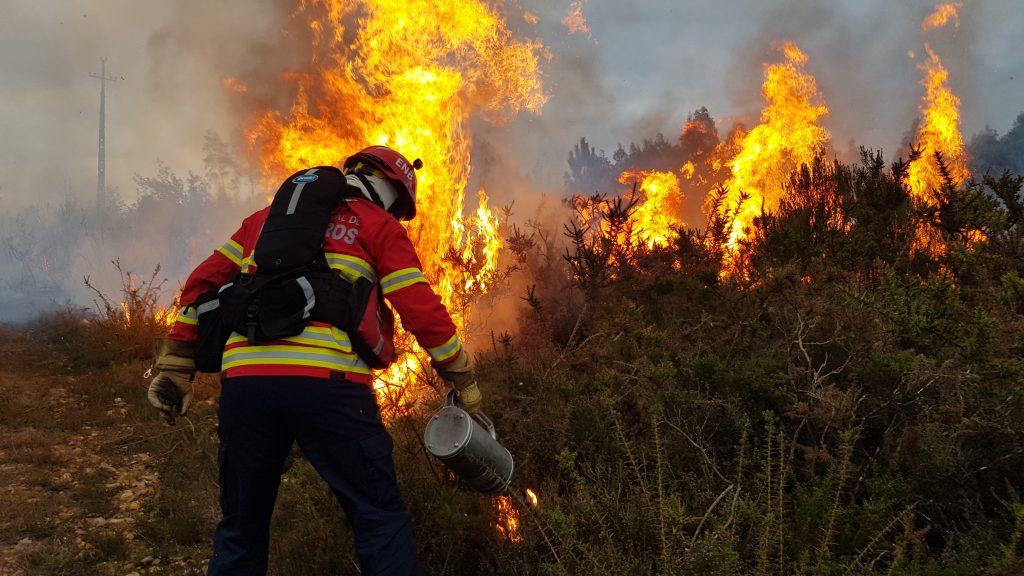The Intergovernmental Panel on Climate Change (IPCC) published the second part of the 6th assessment report on February 28, 2022. This report looks notably at the possible future influence of climate change on forest fires and fires’ potential consequences for ecosystems, landscapes and local communities.

A Borrowed Planet by Alisa Singer
Various causes for the predicted increase in fires
The global rise in temperature will influence the probability of extreme fires scientist remind. With 4ºC warming by 2100, wildfire frequency is projected to have a net increase of about 30% (medium confidence).
Yet, the IPCC report also underlines that all fires are not directly linked to the rise of the temperatures. Many are caused by land abandonment, reforestation, changes in vegetation or land management practices, which have exerted more influence on forest fires than climate change in the past.
The wildfire event that occurred in Portugal in 2017 contributes to demonstrate that wildfires are due to many factors, including the global warming. Indeed, this country is a very high-risk area where 2017 was one of the most violent fire in the last 40 years. IPCC researchers observe that in the Mediterranean zone, fire suppression, fire prevention, agricultural abandonment, and reforestation overall exerted even stronger influences on burned area than climate.

©Verónica Catarino. Escola Nacional de Bombeiros.